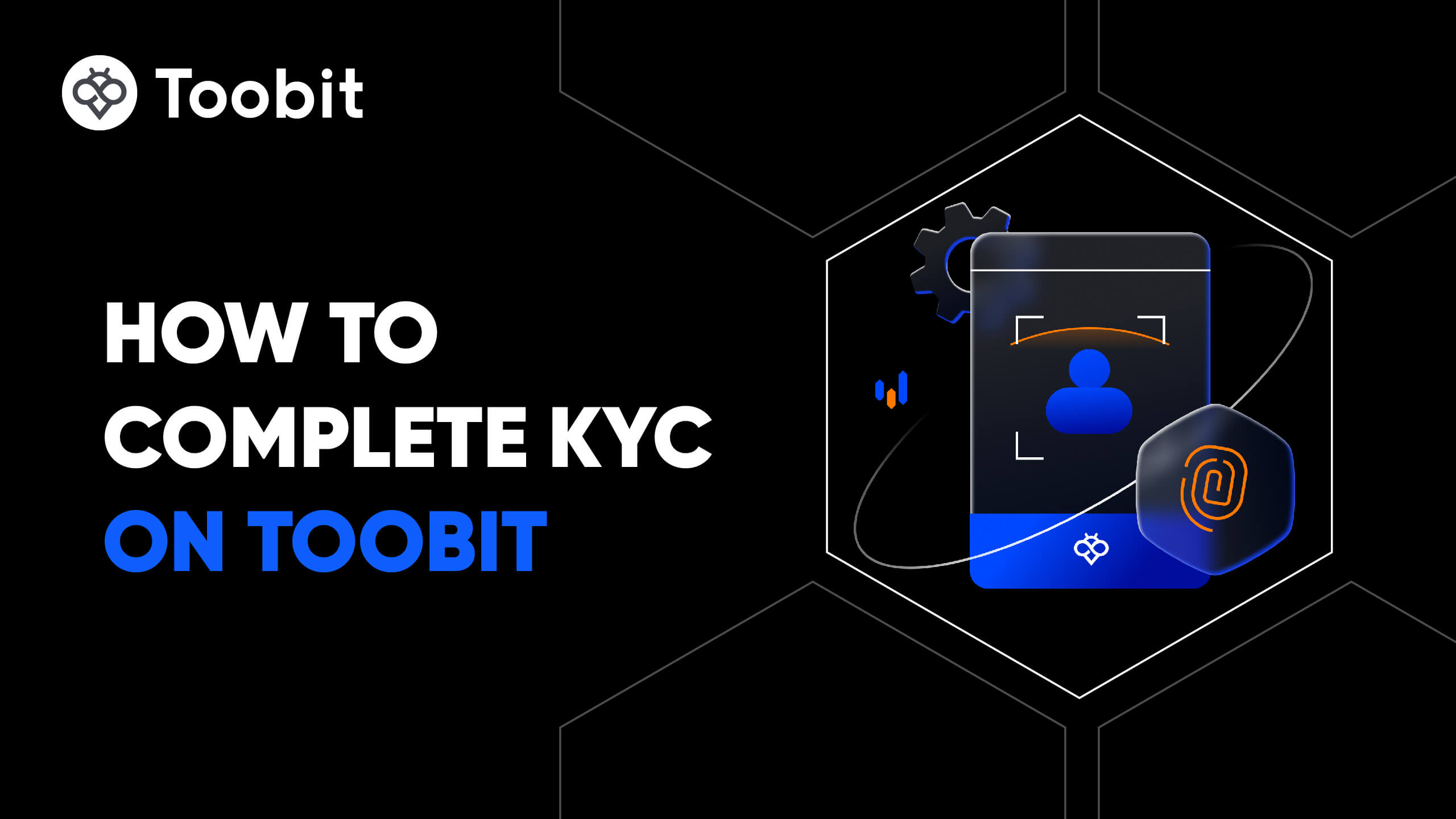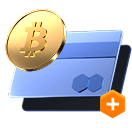Lido DAO price
LDOLido DAO market info
Live Lido DAO price today in USD
How much is 1 LDO worth in ?
About Lido DAO(LDO)
Lido DAO price history
Why does the price of Lido DAO always fluctuate?
What factors affect the performance of Lido DAO prices?
Global Lido DAO prices
How to buy Lido DAO
Create your free Toobit account
Sign up on Toobit with your email address/mobile phone number and country of residence, and create a strong password to secure your account.
Verify your identity
Complete identity verification by submitting your personal details and a valid photo ID.
Add a payment method and buy Lido DAO (LDO)
Add a credit/debit card or bank account after verifying your Toobit account. Use multiple payment options to buy Lido DAO on Toobit.
Trade LDO perpetual futures
After signing up on Toobit and buying USDT or LDO tokens, you can start trading derivatives, including LDO futures and margin trading to increase your income.
Join LDO copy trading with lead traders
After signing up on Toobit and successfully buying USDT or LDO tokens, you can also start copy trading by following Lead Traders.
Where can I buy Lido DAO?
Buy crypto on the Toobit app
Sign up within minutes to purchase crypto via credit card or bank transfer.
Trade on Toobit
Deposit your cryptocurrencies to Toobit and enjoy high liquidity and low trading fees.
Video section — quick verification, quick trading

How to complete identification on Toobit and protect yourself from fraud
- 1.Log in to your Toobit account.
- 2.If you're new to Toobit, watch our tutorial on how to create an account.
- 3.Click on the profile icon in the upper right corner of the navigation bar, then tap on Identification page.
FAQ About Lido DAO (LDO)
What makes lido dao unique?
Lido DAO is the dominant liquid staking protocol, founded in 2020. The project was launched by a collective of core contributors and notable figures, including Konstantin Lomashuk, Vasiliy Shapovalov, and Jordan Fish, supported by angel investors such as Stani Kulechov (Aave) and Banteg (Yearn), and venture firms like Semantic VC and ParaFi Capital. Its uniqueness stems from solving the liquidity problem of staking: it allows users to stake assets like ETH without locking them up, issuing a liquid token that represents the staked position. This innovation has embedded it deeply within the Decentralized Finance (DeFi) ecosystem.What are LDO goals?
Lido's main objective is to make staking accessible, liquid, and secure. Its key goals are:- Allowing users to earn staking rewards without having to lock up their capital or meet high minimum deposit requirements (like the 32 ETH minimum for solo staking).- Reducing the risk of losing staked assets due to software errors or malicious actions by spreading deposits across a vetted network of professional node operators.- Issuing the liquid stETH token, which can be traded, transferred, or used as a building block (collateral, liquidity) in other DeFi applications to maximize capital efficiency.- Providing a decentralized, user-friendly alternative to solo self-staking and centralized exchange staking.What are the LDO tokenomics?
Lido utilizes two primary tokens: stETH and LDO.1. stETH Token: This is the liquid staked token representing a user's staked Ethereum, rewards, and any penalties. When a user deposits ETH into the Lido smart contract, they receive stETH at a 1:1 ratio. The stETH balance updates daily (or ""rebases"") to reflect accrued staking rewards. This token can be instantly traded, transferred, or integrated into various DeFi protocols, making staked ETH liquid. The market price of stETH generally tracks ETH, but its deep integration across DeFi protocols is a key driver of its demand and utility. Since the Ethereum ""Merge"" and the enabling of withdrawals, users can also redeem stETH for ETH via the Lido protocol.2. LDO Token: This is the governance token for the Lido DAO. LDO holders vote on key decisions affecting the protocol, such as managing the fee structure, selecting and penalizing node operators, and initiating upgrades (such as the recent modular Lido V3 upgrade in October 2025). Voting weight is proportional to the amount of LDO a voter stakes into the voting contract, ensuring the stability and decentralized governance of the platform.How is the Lido DAO network secured?
The Lido protocol prioritizes security across several layers:- Non-custodial Smart Contracts: User funds (ETH) are locked in a smart contract that is non-custodial, meaning the node operators themselves cannot directly access the user's principal.- DAO oversight: The LDO token holders collectively govern the protocol, voting to vet, select, and onboard new professional node operators. They also vote on parameters to penalize (slash) existing operators for poor performance or malicious activity.- Bug bounties: Lido maintains a robust partnership with leading DeFi bug bounty platforms, such as Immunefi, offering significant rewards (e.g., up to $2,000,000) to whitehat hackers to identify and fix vulnerabilities, focusing on preventing fund loss and governance takeovers.How can investors earn passive income with LDO coin?
Investors primarily earn passive income through the Lido platform by:- Staking ETH: Depositing ETH through Lido and receiving stETH in return. The stETH token automatically accrues Ethereum staking rewards.- DeFi composability: Users then maximize these earnings by utilizing stETH in other Decentralized Finance protocols, such as using it as collateral for borrowing or providing liquidity in Automated Market Makers (AMMs) like Curve, which often generates additional yield.What are the advantages of holding LDO coin in a crypto portfolio?
Holding LDO provides direct exposure to the governance and economic success of the dominant liquid staking protocol (currently holding nearly 60% of the market share as of October 2025). Advantages include:- Governance participation: The ability to vote on critical protocol parameters, influencing the future development and fee structure of Lido.- Protocol exposure: LDO's value is tightly coupled with the growth of the Ethereum staking market, as the protocol's revenue (from the 10% fee on staking rewards) directly benefits the DAO treasury and its long-term sustainability.- Diversification: It offers a form of exposure to the growing DeFi sector that is specific to the infrastructure layer of staking.How does LDO coin compare to other staking tokens in the market?
LDO differentiates itself as a governance token for a multi-chain liquid staking solution. Unlike tokens limited to a single network or project, LDO oversees the operations on Ethereum (stETH), Polygon (stMATIC), and other chains. This unique focus:- Maximizes liquidity and utility: By issuing liquid staked tokens like stETH, Lido ensures users retain access to their capital, enabling higher capital efficiency compared to traditional locked staking.- Offers institutional appeal: The protocol's scale and recent upgrades, such as the modular V3 launch in October 2025, make it attractive to institutional investors seeking compliant, diversified staking infrastructure.- Extends governance: The LDO governance mechanism controls a large, decentralized network of professional node operators, distinguishing it from simpler staking pool tokens.How does governance work within Lido DAO?
Governance is managed through a decentralized, on-chain voting system where LDO token holders are the ultimate decision-makers. They are empowered to propose and vote on key changes, which include:- Updates to staking and withdrawal strategies.- Changes to the protocol's 10% fee structure (split between node operators and the DAO treasury).- Vetting and selecting new Node Operators. Token holders can participate by staking their LDO and voting directly on proposals or by delegating their voting power to a representative. Since July 2025, the DAO has implemented Dual - Governance, allowing stETH holders a limited ability to veto certain proposals, balancing power between the governance token (LDO) and the staked asset (stETH).What are the risks associated with using Lido DAO for staking?
While Lido offers significant advantages, users should be aware of several risks:- Smart Contract risk: The risk of a vulnerability or bug in the protocol's smart contracts leading to a loss of user funds.- Slashing risk: Although LDO's diversified validator set minimizes this, poor performance or malicious behavior by node operators can still result in penalties (slashing) that reduce the staking rewards earned by stETH holders.- stETH depeg risk: Although stETH is designed to track ETH 1:1, market pressures, such as sudden, large sales, can cause a temporary price deviation (or ""depeg"") from the underlying ETH value.- Centralization risk: Despite efforts (like the Community Staking Module), Lido's large market share introduces concentration risk, making its decentralization a continuous area of focus and debate.Is Lido DAO a good investment?
This is not financial advice. Investing in LDO is fundamentally a bet on the continued dominance and profitability of the Lido liquid staking protocol. It is a high-risk, high-potential-reward investment that is highly correlated with the overall health and success of the Ethereum staking ecosystem and the broader DeFi sector.Why is Lido so popular?
Lido achieved its dominant position by solving the single largest problem in staking: illiquidity.1. Solved the liquidity problem: Lido pioneered liquid staking, allowing users to stake ETH and immediately receive the tradable, liquid stETH token. This eliminated the opportunity cost of having capital locked up, enabling users to earn staking rewards while simultaneously using the token in DeFi.2. Network effect & composability: stETH quickly became a DeFi ""money Lego,"" integrated across major protocols like Aave, MakerDAO, and Curve. This powerful flywheel effect cemented its indispensability in the crypto economy.3. Lowered the barrier to entry: Lido democratized staking by removing the technical complexity and the large 32 ETH minimum capital requirement, making staking accessible to everyone.4. First-mover and multi-chain strategy: Launching early allowed Lido to build brand trust and a battle-tested product. Its expansion to other major PoS chains (Polygon, etc.) further solidified its market lead.What are the risks of liquid staking with Lido?
While highly secure, potential risks include:- Smart Contract Risk: The risk of a bug in the Lido smart contracts.slashing risk: Validators can be penalized (slashed) for misbehavior. Lido mitigates this by spreading stake across many professional node operators and maintaining a insurance fund.- stETH Peg Risk: In volatile markets, stETH may trade at a slight discount or premium to ETH on secondary markets.What is the role of the LDO token?
The LDO token is the governance token of the Lido ecosystem. Holding LDO gives you the right to vote on proposals that shape the protocol's future, such as fee changes, adding new node operators, and treasury management. This ensures the protocol remains decentralized and community-led.



